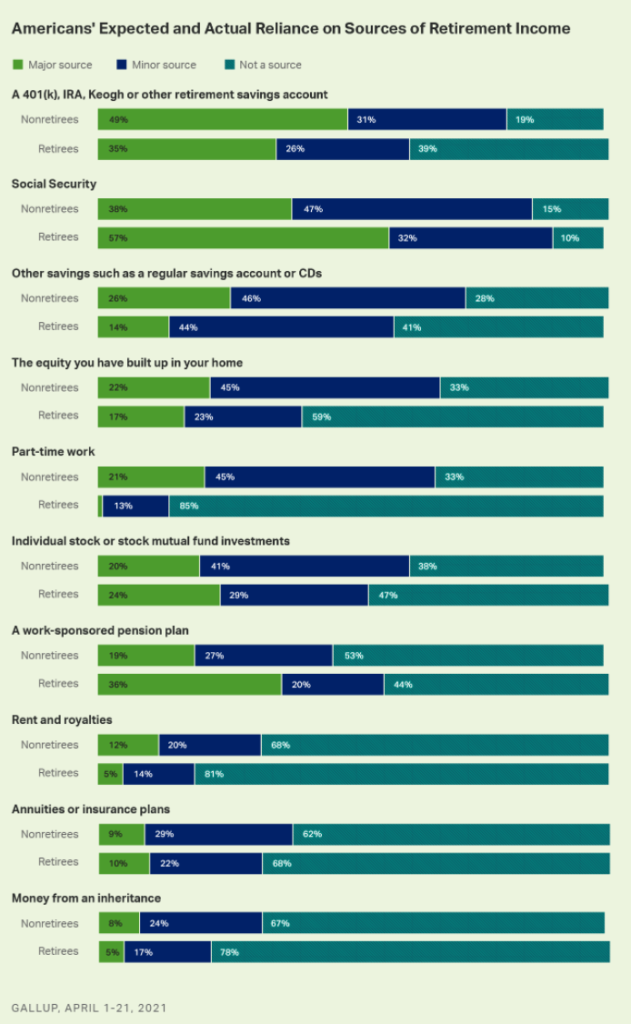Link: https://news.gallup.com/poll/350048/retirees-experience-differs-nonretirees-outlook.aspx
Graphic:

Excerpt:
The differences in reliance on income sources between those who are already retired and those who are not yet retired are likely attributable, at least in part, to apprehension about the Social Security system, as well as the rise of 401(k)s accompanied by a decline in work-sponsored pension plans.
57% of retired U.S. adults say they rely on Social Security as a major income source, and 38% of nonretirees expect it to be a major source for them.
Likewise, 36% of retirees and 19% of nonretirees say a work-sponsored pension plan is or will be a major income source.
Nonretirees are most likely to say a 401(k) or other retirement savings account will fund their retirement (49%). Meanwhile, 35% of retirees mention 401(k)s as a major funding source of their retirement.
Author(s): Megan Brenan
Publication Date: 18 May 2021
Publication Site: Gallup